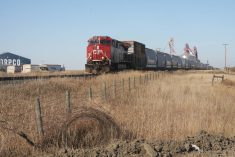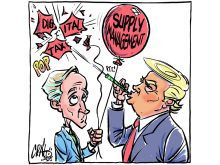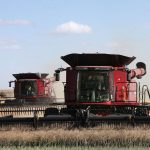THIS year, as always, Canada Day gave me and millions of other Canadians a chance to celebrate our country. We have much to celebrate.
Canada continues to be rated as one of the best countries in which to live – stable, culturally diverse, prosperous, tolerant and peaceful.
As a rural Canadian, I am especially grateful for a peaceful countryside. Despite the huge challenges facing many farm and rural Canadians, it’s worth noting that land mines, warring factions and drug lords are not among them. And the crops we’ve seeded are not being targeted for deliberate eradication by foreign troops.
Read Also

Agriculture needs to prepare for government spending cuts
As government makes necessary cuts to spending, what can be reduced or restructured in the budgets for agriculture?
This is just one more big difference between our Canada Day and that same day in southern Afghanistan, where Canadian troops are fighting in the U.S.-led Operation Enduring Freedom.
In contrast to their home ground, these soldiers are stationed in the poorest country in Asia where the authority of the national government barely reaches beyond the capital city. The rest of the country is dangerous, war torn territory. Mounting casualties tell the grim story.
The military intervention has not resolved the desperate poverty and insecurity of rural people.
Afghanistan has gone from growing enough fruits, vegetables and meat and being nearly self-sufficient in grain production in 1978, to needing a lot of food aid.
Because of its mountainous terrain, much of the land is only suitable for grazing. However, fertile valleys with small irrigation systems used to produce sweet, delicious fruits and high quality nuts. In fact, about 60 percent of the world’s dried fruit came from Afghanistan in the 1970s.
Decades of conflict have destroyed many of the orchards as well as the marketing systems, roads and bridges. Opium poppies, the basis for drugs, profits and arms, became the most important crop until the rigid Taliban regime took over and virtually eliminated this production.
Ironically, the invasion that defeated the Taliban has transformed agriculture back to opium production. Afghanistan is set to harvest its largest ever crop of opium poppies, doubling its production of 2005.
Desperate farmers need the cash. Drug and arms dealers have the marketing networks. Local war lords gain power. Our allies in Afghanistan, the Northern Alliance members, many of whom are in the government, rely on the opium economy. More than 25,000 acres of the opium crop are growing on government owned land, according to the July 5 Financial Times. Narcotics trafficking accounts for half of Afghanistan’s GDP.
In a further complication, Taliban fighters are encouraging opium production as a tool of resistance to the western government’s war on drugs.
Given these dynamics, the military solution is dangerous and unworkable. The military campaign to eradicate the poppy crop is increasing violence and criminality in rural areas.
For the sake of Afghanistan and ourselves, Canada should reclaim its role as a force for peace. The harvest from our current strategy is more death and destruction, more enemy fighters and a bumper opium crop.
For a different kind of harvest, swords must be beaten into ploughshares.
Nettie Wiebe is a farmer in the Delisle, Sask., region and a professor of Church and Society at St. Andrews College in Saskatoon.
















